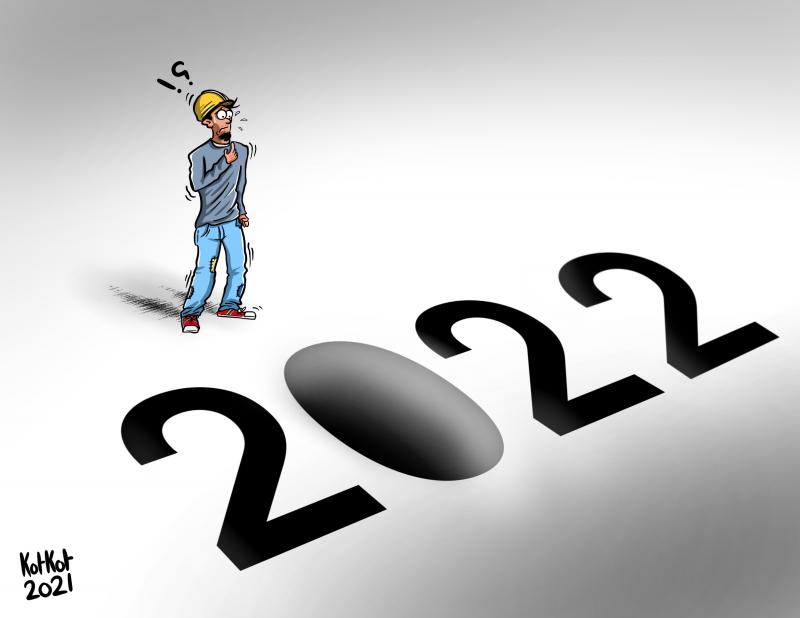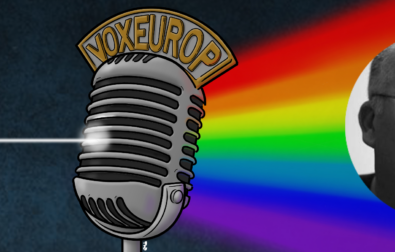“Do you think there'll be a generation of 22ers?” asked a student in the German university town of Göttingen. A cohort of Europeans, that is, for whom the full-scale war in Ukraine that began in 2022 shapes the way they think and act politically for the rest of their lives. It's an important question.
The student was responding to my argument that today's Europe has been shaped by four key political generations: the 14ers (with life-changing youthful experience of the First World War), the 39ers (Second World War), the 68ers (1968, in all its different manifestations) and the 89ers (velvet revolutions and the end of the Cold War). Since in each case the formative moment comes early in adult life, there is a significant time lag before the cohort comes to power. 68ers played a leading role in European politics well into the 2000s. 89ers are now at the helm.
A few years ago, our “Europe's Stories” research project at Oxford University enquired into formative moments for today's young Europeans. At that time, there seemed to be no single moment comparable with 1989, 1968 or the two world wars. Instead, we found a shared experience, that of freedom of movement across Europe, and a dominant concern: climate change. There were, however, some specific moments for geographical subgroups of Europeans: the wars in former Yugoslavia for south-east Europeans; the Eurozone crisis for young Greeks, Spaniards and Portugese; Brexit for Brits and Irish.
89ers vs. 22ers
But surely the largest war in Europe since 1945 must galvanise a new pan-European political generation. If not this, what?
When I mention this thought, people often respond enthusiastically to it. At one recent panel discussion in Estonia, our distinguished moderator concluded “We are all 22ers now!” But she was an 89er. The next day, another speaker took up the theme; but she's an 89er too.
Like them, I would love to see a new political generation with a sense of shared purpose to drive the European project forward. But neither opinion polls nor conversations with young Europeans suggest that it yet exists.
In Ukraine, to be sure, I have met many young people for whom this obviously will be the defining moment of their political lives: a cross between '39 and '89. In Poland and Estonia I have seen a similar effect, although less strongly. It's far less visible in Western Europe. Here there's huge sympathy for Ukraine, enhanced by personal encounters with Ukrainian refugees, but the war has become one news story among many.
There are large differences even between central and east European countries closer to the warzone. In recent polling done for the GLOBSEC think tank, roughly one third of Bulgarian and Slovak respondents say the West is primarily responsible for the war in Ukraine. A shocking 50% of Slovaks agree with the statement that “the US poses a security threat to my country”.
The generational breakdown is still less clearcut. In-depth analysis of polling done for our research project and the European Council on Foreign Relations shows that just 46% of 18-29-year-olds describe Russia as an adversary, compared with more than 60% of those aged over 60. In some of the ten European countries we polled, young people seem more pro-Western, in others, more critical of the West. Only in support for Ukraine's membership of the EU are young Europeans generally more positive than the old. GLOBSEC's analysts tell me they find an equally chequered pattern in their data.
A vape dream?
Moreover, these polls don't establish the relative salience of the issue. My conversations with many young Europeans, as I travel around the continent, suggest that subjects like climate change, socio-economic inequality and what they see as their blighted life chances are at least as important to them as this war.
Does this mean the 22ers are just a vape-dream of old 89ers? Or at best, another of those geographical subgroups? Perhaps, but not necessarily. For obvious reasons, 1989 was experienced more intensely in eastern than in western Europe, yet it still shaped an entire cohort of future leaders.
Political generations are not born but made. So the question must really be put back to that Göttingen student and her peers around Europe. Are you going to create a political class of 22ers, combining the defence of freedom and restoration of peace in Europe with your own generational themes such as intersectional equality and a green energy transition? I sure hope so. But it's up to you.
Timothy Garton Ash's most recent book is Homelands: A Personal History of Europe.
👉 This article at ECFR and Financial Times
Was this article useful? If so we are delighted!
It is freely available because we believe that the right to free and independent information is essential for democracy. But this right is not guaranteed forever, and independence comes at a cost. We need your support in order to continue publishing independent, multilingual news for all Europeans.
Discover our subscription offers and their exclusive benefits and become a member of our community now!












